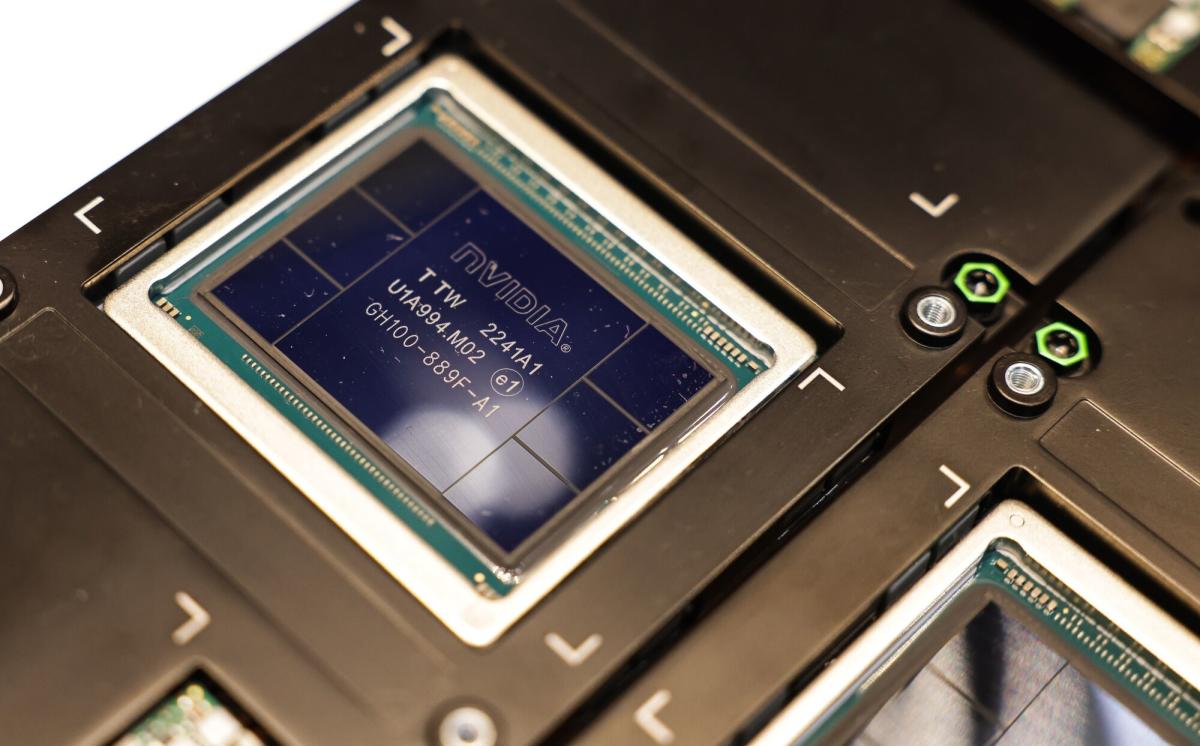(Bloomberg) — U.S. officials have halted the issuance of licenses to chipmakers such as Nvidia Corp. and Advanced Micro Devices Inc. for large-scale shipments of AI accelerators to the Middle East have been delayed, according to people familiar with the matter, while officials conduct a national security assessment of AI development in the region.
Most read from Bloomberg
It is unclear how long the review will take, nor is there a concrete definition of what constitutes a large shipment, said the people, who asked not to be identified because the discussions are private. Officials are particularly focused on bulk sales, the people said, as countries such as the United Arab Emirates and Saudi Arabia look to import huge quantities of chips used in AI data centers.
AI accelerators – a category developed by Nvidia – help data centers process the flood of information needed to develop artificial intelligence chatbots and other tools. They have become essential equipment for companies and governments looking to build AI infrastructure.
In October, the Commerce Department added much of the Middle East to undermine export restrictions originally aimed at China and a handful of other foreign adversaries. That meant companies needed a special permit from the U.S. government to ship advanced semiconductors and chipmaking tools to countries like Saudi Arabia and the UAE.
U.S. officials in recent weeks have delayed or failed to respond to permit applications filed under that rule, some people said. That includes efforts to sell to customers in the UAE, Saudi Arabia and Qatar, one of the people said. In addition to Nvidia and AMD, Intel Corp. also makes. and startup Cerebras Systems Inc. accelerator chips. The four companies declined to comment.
The aim is to give Washington time to develop a comprehensive strategy around how the advanced chips will be deployed abroad, the people said. That includes negotiating who manages and secures the facilities used to train AI models, some people said.
Nvidia shares fell to a low for the day after Bloomberg reported on the licensing reviews. At the close in New York, the stock fell 3.8% to $1,105. AMD, meanwhile, pared earlier gains. It rose less than 1% to $166.75.
In a statement, the Commerce Department said its top priority was “protecting national security.”
“With respect to the most advanced technologies, we conduct extensive due diligence through an interagency process, thoroughly reviewing licensing applications from applicants who plan to ship these advanced technologies around the world,” a department representative said. “As always, we remain committed to working with our partners in the Middle East and around the world to protect our technology ecosystem.”
Thea Kendler, head of export administration at the Commerce Department, visited the UAE, Saudi Arabia, Qatar and Kuwait earlier this month as part of those ongoing discussions. In the UAE, she indicated progress has been made in cooperation on semiconductor export controls, another person familiar with the matter said.
Part of the concern is that Chinese companies, themselves largely cut off from cutting-edge American technology, could gain access to those chips through data centers in the Middle East. The Biden administration is waging a broader campaign to keep advanced semiconductors and manufacturing equipment out of China’s hands, fearing the technology will be used to strengthen China’s military.
The UAE and Saudi Arabia are competing for regional leadership in AI, with the aim of reducing their economies’ dependence on oil. Both countries see the U.S. as a key partner in that effort, and top officials and companies have said they will comply with U.S. requests to keep Chinese supply chains separate — or divest from Chinese technology entirely.
Meanwhile, Saudi Arabia just signed a deal with China’s Lenovo Group Ltd., which will see the computer manufacturer build a research and development center in Riyadh.
Read more: Lenovo signs Saudi pact with $2 billion convertible issuance
The ability to secure export licenses is a key part of negotiations surrounding Microsoft Corp.’s $1.5 billion investment. in Abu Dhabi AI company G42 – a partnership that followed months of talks with US officials.
–With help from Nick Wadhams.
(Updates shares in seventh paragraph.)
Most read from Bloomberg Businessweek
©2024 BloombergLP






